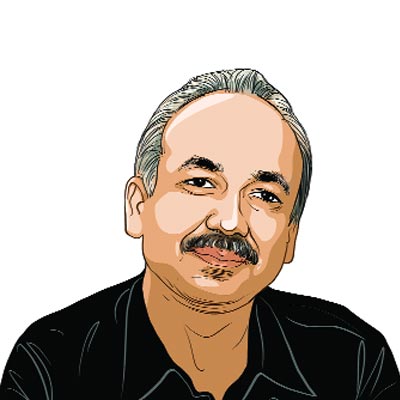Opinion The defiled republic
Demolition of the old state,without a vision for a new Nepal,has led to the present disorder
Demolition of the old state,without a vision for a new Nepal,has led to the present disorder
What constitutes an ideal democracy,or a republic? What is the best model of federalism suited to Nepal? These issues should have been at the core of the debate. But nothing of the sort happened during the last six years of political change that began with King Gyanendra administering the oath of office to G.P. Koirala as prime minister.
In the days,months and years that followed,the parties began laying the foundations of a republic,first by declaring that the birthday of King Prithvi Narayan Shah would no more be observed as National Unity Day. The republic euphoria did not end there. All statues of Prithvi Narayan Shah and his descendants were dismantled. Royal names associated with most organisations,corporations,boards and institutions were removed.
Indra Rajya Laxmi Devi Prashuti Griha was one such hospital founded almost 60 years ago,at the initiative of King Mahendra in memory of his wife who died of complications at child birth. The hospital was dedicated to future mothers so that they might avail proper maternity and neo-natal care. It was affordable even to the lowest income groups,and the countrys best doctors had served there. Six years down the line,the hospital is in a dismal condition. Mid-June to mid-July this year,35 out of 60 children delivered died. We advise mothers not to be admitted here, says a doctor. This is not an isolated case. All government hospitals in Kathmandu and outside have political cadres controlling the management. Public anger over corruption,mismanagement,bungling of budgets and poor service delivery is spilling over. But the health sector is not an exception.
The absence of even minimal accountability has made things worse. This is where outside perception about the potential of political change in Nepal and the actual plight of the Nepalese people are at odds with each other. The poor quality of political leadership,the failure to deliver the constitution and institutionalise the changes promised and the prevailing statelessness have collectively contributed to the public anger. That breaking statues of royalty does not automatically lead to a republican order is the hard lesson the Nepalese have learnt.
That is probably why the former king,Gyanendra,was seen as speaking for the people recently when he said things are in a bigger mess since he left,and that people want some role for the monarchy as a guardian. No one,except half-a-dozen leaders,including Prime Minister Baburam Bhattarai,challenged the former king. Even Hishila Yami,the PMs wife and a politburo member of the Unified Communist Party of Nepal-Maoists,almost endorsed Gyanendras claim: If the multi-party system fails,I see Gyanendra Shah coming back to the throne.
Nepals political experiment has failed,but the outcomes are not predictable yet. Immediate neighbours like India and China have begun to realise the gap between promise and realisation,and the resultant popular frustration. Fragmented politics and the Maoists emphasis on caste and ethnic politics seem to be worrying the two neighbours as much as the Nepalese. Both India and China realise that the instability caused by the failure to manage the prolonged transition will have a spillover effect beyond Nepals borders.
The major parties blindly followed the Maoists dictum that to build a New Nepal the old one had to be totally demolished. They have lately realised that the demolition of the old state,without a proper design of the New Nepal,will invite disaster. Statelessness is at its peak. In the past six years,almost all constitutional bodies were filled by cadres of major parties. Now,with these members retired or retiring,Nepals constitutional bodies have become defunct. Nine of 14 supreme court judges will retire in the next three months. The election commission will have no commissioner in three months,jeopardising the conduct of elections. With no constitution,no parliament and no political consensus,the fighting among political parties as well as the caretaker PMs assertion that he will continue until elections can be summed up as an opportunity missed,and the republic defiled.
yubaraj.ghimire@expressindia.com


